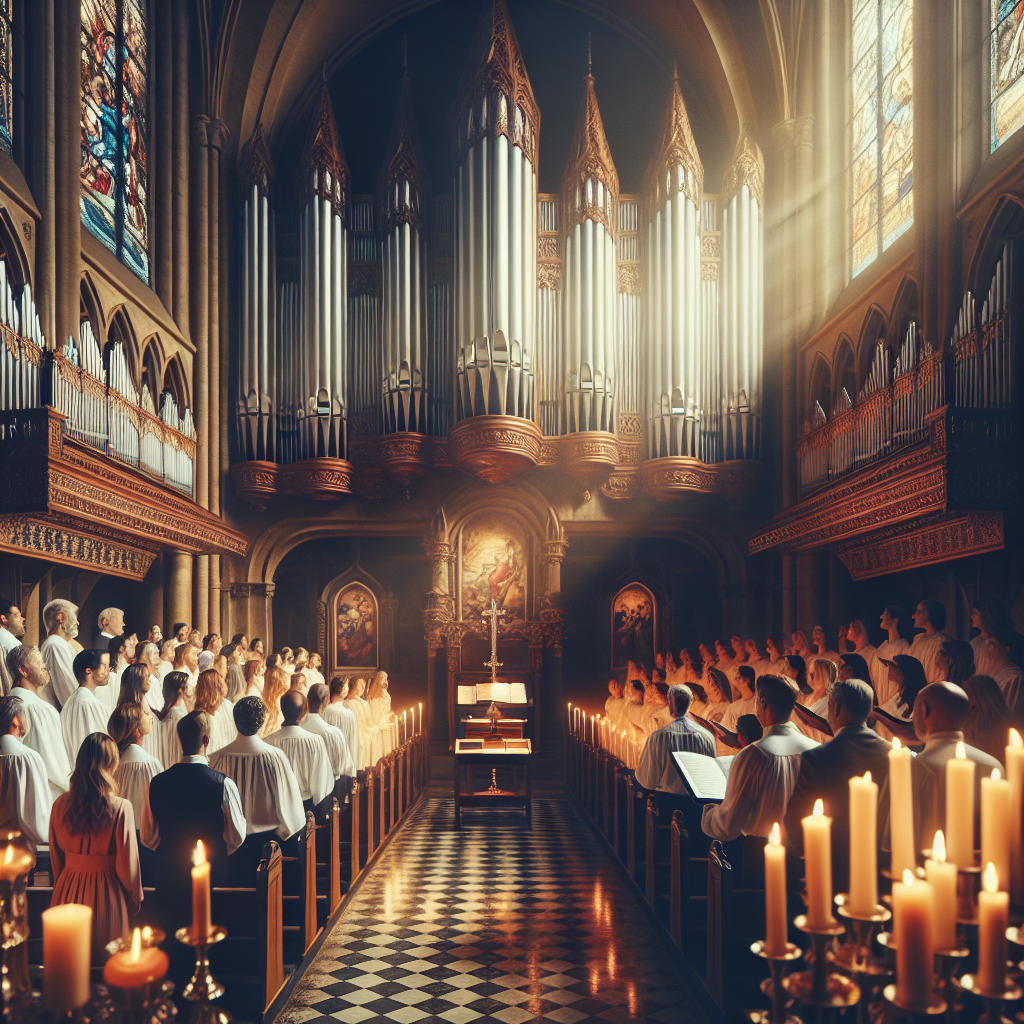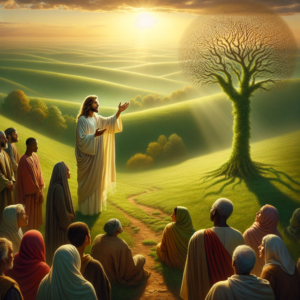Spiritual Devotional about Sacred Music
The Harmonious Symphony of the Spirit: Embracing the Gift of Sacred Music
Hello, dear friends and fellow seekers of the divine! Today, let’s embark on a melodious journey into the heart of one of the most uplifting gifts bestowed upon us—the power of sacred music. Whether it’s the tranquil melody of a hymn or the exuberant joy of gospel, sacred music holds the power to elevate our spirits and draw us nearer to the divine.
A Heavenly Chorus of Praise
From the dawn of creation, music has been an integral part of expressing divine worship. The Bible repeatedly celebrates the importance of music in spiritual life. In Exodus 15:1-21, Moses and the Israelites sang a triumphant song to the Lord after their miraculous escape through the Red Sea, illustrating how music can be an expression of gratitude and praise for God’s saving acts.
The Psalms stand as another powerful testament to the sacredness of music. Psalm 150:1-6 calls us to praise God with a symphony of instruments: "Praise him with the sounding of the trumpet, praise him with the harp and lyre…" These verses remind us that music is not merely an art form, but a channel through which our souls communicate directly with the Creator.
The Transformative Power of Sacred Music
Sacred music is uniquely positioned to touch and transform our hearts. It brings us into a deeper understanding of biblical truths and spiritual principles. Consider the Apostle Paul’s exhortation in Colossians 3:16: "Let the message of Christ dwell among you richly… through psalms, hymns, and songs from the Spirit, singing to God with gratitude in your hearts." Through music, we absorb the teachings and love of Christ, allowing them to permeate our lives.
The transformative power of music is also seen in its ability to unite believers. Regardless of language or cultural background, sacred melodies have the universal language to bind us together in harmonious worship. Whether in a grand cathedral or a cozy living room, a heartfelt hymn sung in unison transcends earthly divisions and brings us closer to one another, as well as to God.
Inspiration for Every Heart
Today, I want to encourage each of you to embrace the gift of sacred music. Let your heart be open to the messages it conveys and the emotions it stirs within you. Whether you are singing in the choir, playing an instrument, or simply listening in reflective silence, know that you are taking part in something profoundly beautiful.
As you engage with sacred music, let it inspire acts of love, compassion, and joy in your life. Remember King David, who danced before the Lord with all his might (2 Samuel 6:14). Let go of inhibitions and let the music move you in spirit and truth.
A Call to Harmony
In closing, may sacred music continue to inspire and uplift you, leading you closer to the heart of God. Allow it to be a source of comfort in times of sorrow, a beacon of hope in moments of doubt, and a celebration of joy in every situation. As you carry these melodies in your heart, remember that you are part of a greater symphony, each note resonating in the world as a testament to the love and grace of our Creator.
Blessings to you all, and may your life be filled with the beautiful song of the Spirit! Let us walk forward in harmony, ever grateful for this divine gift. 🎵✨
Explore and dig up answers yourself with our BGodInspired Bible Tools! Be careful – each interaction is like a new treasure hunt… you can get lost for hours 🙂
Q&A about Sacred Music
Certainly! Here’s a Q&A based on the topic of sacred music:
Question 1: What is sacred music?
Answer: Sacred music is a genre of music dedicated to religious purposes and spiritual experiences. It is typically used in religious worship, ceremonies, and rituals. Sacred music can be found across various cultures and religions, each with its unique styles and compositions that reflect its spiritual beliefs and practices.
Question 2: How does sacred music differ from secular music?
Answer: Sacred music is specifically intended for religious contexts and spiritual contemplation, while secular music is intended for non-religious environments and entertainment. Sacred music often emphasizes themes like worship, prayer, and the divine, with compositions aligned with liturgical or scriptural texts. In contrast, secular music focuses on worldly themes such as love, nature, and human experiences.
Question 3: What are some common forms of sacred music?
Answer: Some common forms of sacred music include hymns, chants, psalms, and oratorios. Hymns are religious songs or poems of praise to God. Chants, like Gregorian chants, are simple, melodic prayers sung in unison. Psalms are sacred songs or hymns from the Book of Psalms used in both Jewish and Christian traditions. Oratorios are large musical compositions for orchestras and choirs that typically tell a religious story.
Question 4: Can you name a famous piece of sacred music and its composer?
Answer: One famous piece of sacred music is Johann Sebastian Bach’s "Mass in B Minor." This composition is regarded as one of the greatest choral works and demonstrates Bach’s deep spirituality and mastery of the baroque style. The Mass in B Minor is celebrated for its intricate vocal harmonies and profound expression of Christian themes.
Question 5: How has sacred music evolved over time?
Answer: Sacred music has evolved alongside religious practices and the development of music itself. In earlier times, sacred music was predominantly vocal and monophonic, like Gregorian chant. As musical styles evolved, sacred music incorporated polyphony, complex harmonies, and orchestration. In modern times, sacred music includes contemporary styles, integrating popular music elements, reflecting changes in worship practices and cultural influences.
Question 6: Are there contemporary genres of sacred music?
Answer: Yes, contemporary genres of sacred music include gospel, Christian rock, and contemporary worship music. These styles often feature modern musical elements like electric guitars, drums, and synthesizers while delivering messages of faith, hope, and worship. They are popular in many churches today and aim to engage younger audiences and communities in spiritual experiences.
Feel free to expand or modify these questions and answers to suit your needs or delve deeper into specific areas of interest!


